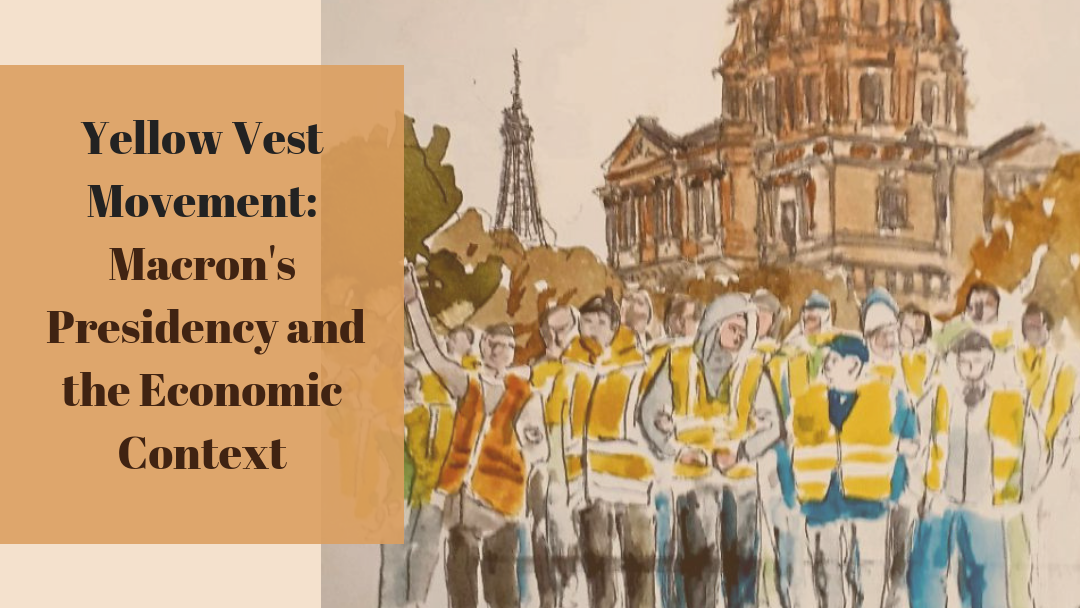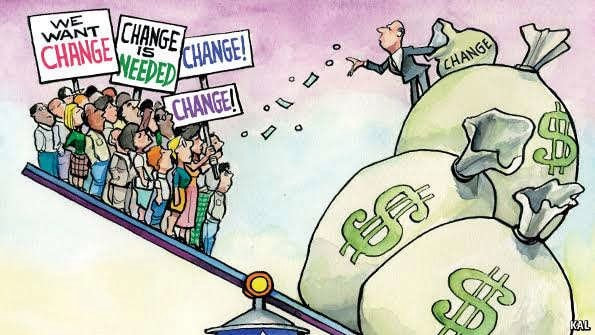ECONOMICS STUDY CENTER, UNIVERSITY OF DHAKA
|
Nahaly Nafisa Khan The pictures of the Yellow Vest Protests in Paris have been flooding our news feeds for quite some time now. As I write this, the protest has entered its possible fourth weekend. Last week in Paris, the protests reached a level of violence unseen since the student uprisings of 1968, with protestors destroying shop windows across the capital and vandalizing national monuments, notably the Arc de Triomphe, an endearing symbol of the French Republic. Finance Minister Bruno Le Maire calls the situation "a crisis" for both society and democracy. He also said that it's a catastrophe for business as well as the economy. About 125,000 protesters took to the streets on Saturday, with more than 1200 taken into custody. But what is this all about? The movement of "gilets jaune", named after the yellow high-visibility jackets that French motorists must carry in their vehicles, started against a new eco-tax on fuel, that would put the working class people's budget over the edge. But this anger among the common French people has been fueling up for quite some time now, because of President Emmanuel Macron's biased policies. The issue brought together protesters from far-left and far-right backgrounds. The demands have also expanded. Even students are taking part, calling for changes in the French high school examinations and university entrance procedures. However, the increased focus on Macron and his elitist image, point to deeper divisions in France that reach beyond the protests and could become defining features of the opposition as Macron's popularity slumps. Chants of "Macron resign!" echoed along the grand Champs-Elysees on Saturday as protesters decried him as the "President of the rich", who has ignored the struggling regions around the country. But exactly how was this reputation built? When Macron took office, his main agenda was to revive the French economy which was going through stagnation for quite a long time. He promised massive reforms in many aspects such as pension cuts, pension and dole reform, tax reform, development of the working-class and many more. The idea of a French Welfare state didn't seem impossible with all these agendas. However, when the time came for implementing the reforms, it didn't go as it was supposed to. When President Macron declared tax reforms, turned out the reform made the wealthier people better off, instead of the working-class. While tax credits should have been given to the low wage earners, it went to the wealthier population. For quite some time, the working-class people were finding it very difficult to meet the ends. they couldn’t meet the bare minimum without pushing their budgets over the edge. As a result, mass people were gradually becoming frustrated as no policy went in favour of them. On top of that, Imposing another eco-tax was the point where agitation became inevitable. Remarkably, some of those in the yellow vest crowd had backed Macron's improbable campaign in 2017. But they say that they see the President barely matches their expectations, as he goes on and on with policies that protect the economic interests of the elite. The threat that has been cast upon Macron's presidency puts France as well as the similar neighbouring democracies into some sort of uncertainty. This is because Macron represents the truest liberal-centrist ideals. An impeachment at any point would mean a shift of power, either to the far-left or to the far-right wing. In neighbouring Belgium, meanwhile, anti-government protests adopted the same yellow vest uniform this Saturday during confrontations with riot police near the headquarters of the EU. More than 400 people were detained, according to reports from Reuters. President Macron has been adamant against public demand in previous cases. When the protest first broke out, he was adamant that he wouldn't capitulate to the voice of the street. "I will not concede anything to those who want destruction and disorder", were his words on the ongoing protests. The Prime Minister Édouard Phillippe, on the other hand sympathized with the protesters. "You have to be deaf not to hear the wrath of the French people." He said, "No tax should put the unity of the nation in danger." After all these chaos, President Macron finally seems to be giving in. He finally started thinking about taking the eco-tax back. But this movement has given birth to further questions about other economic aspects including the issue of inequality, which has been fueling up for quite a good measure of time. Let's see how President Macron solves the existing crisis and if he can pass this major test of his presidency.
0 Comments
Leave a Reply. |
Send your articles to: |




